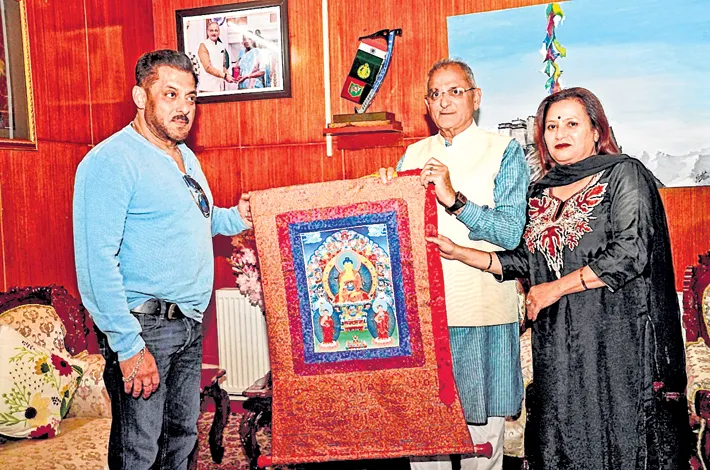The Strange Case of Rayavaram Munsab
06-09-2025 12:00:00 AM

In the sultry heart of Rayavaram, a sleepy village in East Godavari district, the air was thick with secrets and the stench of betrayal. The village, cradled by the lush paddy fields and the serpentine Godavari River, had long been under the iron grip of Rayavaram Munsif Undavalli Suryanarayana Murthy.
To the locals, he was a demigod—benevolent to those who bowed, ruthless to those who dared defy. His sprawling mansion, perched on a hillock, loomed over the village like a vulture eyeing its prey. But beneath his veneer of respectability, Murthy orchestrated a sinister web of greed, his henchmen weaving threads of blood and fear to tighten his hold.
It began with whispers—farmers vanishing from their fields, merchants found lifeless in their shops, their deaths chalked up to accidents or fate. But the pattern was unmistakable to those who dared to see. Murthy’s henchmen, led by the brutish Kasi, targeted anyone who stood in the way of their master’s insatiable hunger for land and power.
A farmer who refused to sell his ancestral plot was found drowned in a canal, his body bloated and tangled in weeds. A trader who dared to question Murthy’s “taxes” was crushed under a cart, his death dismissed as a drunken misstep. The village cowered, silenced by fear and the weight of Murthy’s political connections, which stretched like vines into the corridors of power in Kakinada and beyond.
But not everyone was cowed. SP Rajlaxmi Sarma, a firebrand officer newly posted to the district, had a reputation that preceded her. With piercing eyes and a spine of steel, she had toppled corrupt empires in her previous postings, earning both admiration and enemies. The moment she set foot in Rayavaram, she sensed the rot beneath its idyllic surface. The villagers’ averted gazes, the hurried whispers, the unnatural quiet around Murthy’s name—it all screamed of a predator at large. Rajlaxmi, backed by her loyal team—Inspector Venkatesh, a wiry veteran with a nose for deception, and Sub-Inspector Lakshmi, a young officer with a knack for forensics—vowed to unearth the truth.
The first breakthrough came with the death of Ramu, a small-time grocer who had dared to file a complaint against Murthy’s men for extortion. His body was found in a ditch, his skull fractured. The local police, under pressure from Murthy’s allies, labeled it a robbery gone wrong. But Rajlaxmi wasn’t buying it. She and her team scoured the scene, finding a scrap of cloth snagged on a thorn—a piece of a branded shirt too expensive for a common thief. Lakshmi’s forensic analysis traced it to a tailor in Kakinada, who confirmed he’d made shirts for Kasi and his gang.
Rajlaxmi’s investigation tightened like a noose. She interviewed witnesses in secret, away from Murthy’s prying eyes. A terrified widow, trembling as she spoke, recounted how Kasi had threatened her husband before his “accident.” A young boy, emboldened by Rajlaxmi’s resolve, admitted to seeing Kasi near the canal the night the farmer drowned. Piece by piece, the puzzle formed a damning picture. But Murthy was no ordinary foe. His political patrons—local MLAs and a minister with a stake in his empire—leaned hard on the police department, demanding Rajlaxmi’s transfer. Anonymous threats arrived at her doorstep, and her team faced bribes and intimidation. Yet Rajlaxmi stood firm, her resolve unshaken.
The turning point came when Venkatesh, posing as a laborer, infiltrated a late-night meeting at Murthy’s mansion. Hidden in the shadows, he overheard Kasi boasting about their latest kill—a landlord who’d refused to sell his fertile land. Venkatesh recorded the conversation on a hidden device, capturing Kasi’s chilling laughter and Murthy’s cold approval. Armed with this evidence, Rajlaxmi devised a plan.
She knew a direct arrest would be thwarted by Murthy’s allies, so she played a subtler game. She leaked false information through a trusted informant, making Murthy believe the police were closing in on a minor henchman, not Kasi. Predictably, Murthy’s men turned on each other, and Kasi, fearing betrayal, fled to a hideout in the mangroves.
Rajlaxmi’s team struck at dawn. With Venkatesh leading the charge, they cornered Kasi in the swampy maze. He fought like a trapped animal, but Lakshmi’s quick thinking—using a drone to track his movements—ensured his capture. Under interrogation, Kasi cracked, spilling details of every murder, every payoff, and Murthy’s direct orders. The evidence was ironclad: audio recordings, forensic matches, and witness testimonies. Rajlaxmi moved swiftly, raiding Murthy’s mansion before his political allies could intervene. The Munsif, caught off guard, was arrested in his opulent study, his face a mask of disbelief.
The trial was a spectacle. Murthy’s lawyers, backed by his powerful friends, tried to paint him as a philanthropist betrayed by rogue henchmen. But Rajlaxmi’s meticulous case—bolstered by Kasi’s confession and the mountain of evidence—left no room for doubt. The courtroom in Kakinada buzzed with villagers, some weeping with relief, others whispering in awe of the woman who had felled a giant. Murthy was sentenced to life, his empire dismantled, his henchmen scattered or jailed.
Rajlaxmi stood outside the courthouse, the Godavari breeze cooling her sweat-streaked face. Venkatesh and Lakshmi flanked her, their faces etched with quiet pride. The village of Rayavaram, once suffocated by fear, began to breathe again. Farmers tilled their fields without dread, and merchants opened their shops with newfound courage. Rajlaxmi knew the battle wasn’t over—corruption ran deep, and Murthy’s allies would seek revenge. But for now, justice had prevailed, a beacon of hope in the heart of East Godavari.








